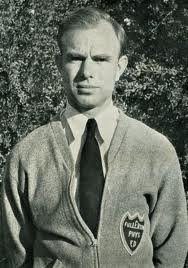By the time, the game was much affected by the new rules and regulations and in 1928 Hungarian water polo coach Bela Komjadi invented the "air pass," or "dry pass". In this new technique the ball was directly passes by one player to another by the using air medium and the other player receives it without the ball hitting the water. Formerly, players would let the ball drop in the water first and then reach out for it, but the dry pass made the offensive game more dynamic, and contributed to Hungarian dominance of water polo for 60 years.
In 1936, James R. ("Jimmy") Smith, California water polo coach and author of several books on water polo mechanics, developed a water polo ball made with an inflatable bladder and a rubber fabric cover, which improved performance. The former ball which was used in playing, absorbed water and became heavier during the game. In 1949, rule changes allowed play to continue uninterrupted after a referee whistled an ordinary foul, speeding up play. In the 1970s, the exclusion foul replaced a point system for major fouls; players guilty of this foul were excluded for a 1 minute penalty and their team forced to play with fewer players.
A player could posses the ball with a limited moment of 45 seconds before scoring attempt. Also penalities and keeping ball in hands time was then reduced. A direct hit to the goal was allowed from the seven (7) meter line after a free throw was allowed in 1994, and changed to a five meter throw in 2005.
The Water Polo tournament at the 2012 Olympics in London is scheduled to be held at the London 2012 Water Polo Arena in the Olympic Park from 29 July to 12 August. The venue will hold 5,000 spectators during water polo matches. Twelve teams will compete in the men's tournament and eight teams in the women's tournament. Olympic Water Polo Tickets are available at Sport Ticket Exchange at reasonable prices. SportTicketExchange.com is an excellent place for Olympic fans to buy or sell Olympic Tickets especially Water PoloTickets.


No comments:
Post a Comment